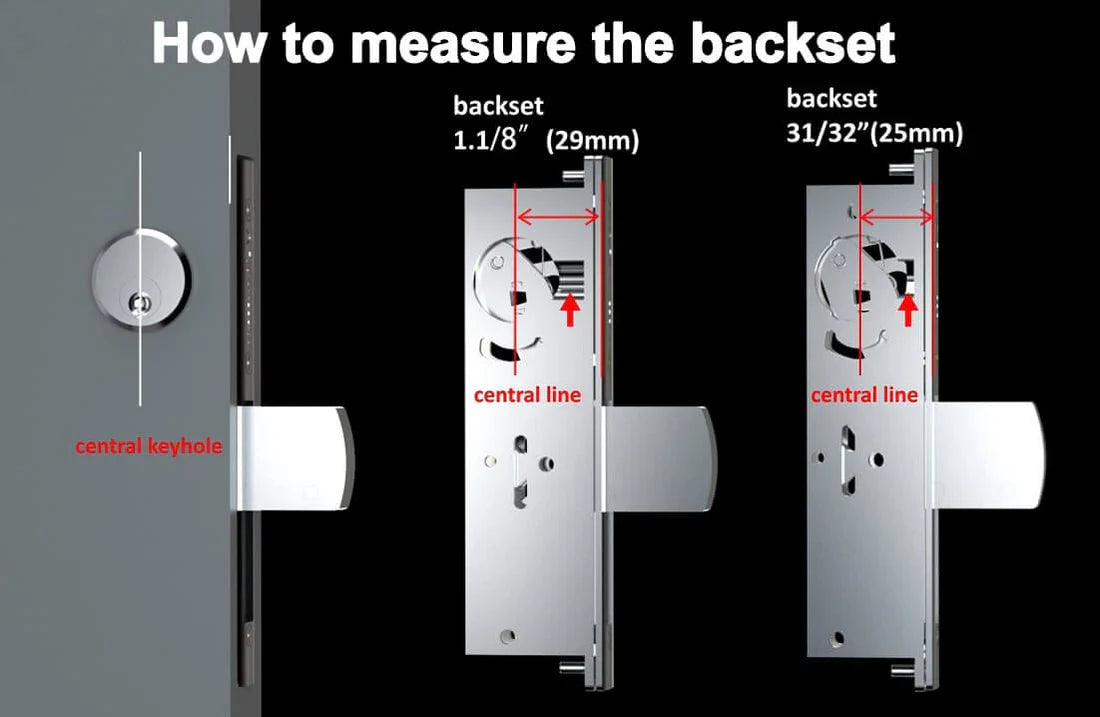
Entry & Commercial Door Locks for Sliding Door Lock Replacement
Share
Sliding doors add elegance and functionality to both homes and businesses, offering expansive views and space-saving access. However, when it comes to security, the standard hardware that comes pre-installed often falls short. Whether you’re upgrading an older door or replacing worn-out hardware, choosing the right sliding door lock replacement is crucial to protect your property against intruders and ensure smooth operation for years to come.
Why Replace Your Sliding Door Lock?
Sliding doors feature large glass panels and rolling mechanisms that make them susceptible to forced entry if not properly secured. Factory-installed locks often consist of simple thumb-turn latches that can be easily jimmied or lifted off their tracks. Over time, worn components may also cause the door to misalign or become difficult to operate.
By opting for a thorough sliding door lock replacement, you not only enhance security but also improve the door’s durability and ease of use. Modern lock systems offer benefits such as multi-point latching, reinforced strike plates, and integrated handle sets that provide both style and substance.
Understanding Entry Door Locks
When considering upgrades for residential settings, focusing on high-quality entry door lock solutions can provide peace of mind. Entry door locks, such as deadbolts and keyed lever sets, are engineered to resist common break-in tactics like drilling, bumping, and forceful kicking.
Popular entry door lock options include:
- Single Cylinder Deadbolts: Operated with a key outside and a thumb turn inside, offering reliable security without added complexity.
- Double Cylinder Deadbolts: Requiring a key on both sides, these locks prevent intruders from turning the thumb turn through broken glass but require careful consideration for emergency egress.
- Smart Locks: Integrate with home automation systems and allow keyless entry, remote monitoring, and customizable access codes for guests.
By selecting an entry door lock with a high ANSI/BHMA security rating and corrosion-resistant finish, you ensure longevity and robust protection against outdoor elements.
Benefits of Commercial Door Locks
For businesses, storefronts, and heavy-traffic environments, commercial door locks are designed to endure constant use and deter sophisticated intrusion methods. These locks typically feature hardened steel components, reinforced deadbolts, and multi-point latching mechanisms.
Key advantages include:
- Increased Durability: Commercial-grade locks are built to withstand thousands of operations without failure.
- Enhanced Security Features: Anti-drill, anti-pick, and anti-saw protections are often standard.
- Multi-Point Locking: Engages at multiple points along the door frame for better resistance to prying and leverage attacks.
- Customizable Access Control: Compatible with key card, keypad, or biometric systems for regulated entry.
Integrating Entry and Commercial Locks
Depending on your property’s needs, you may choose to combine residential entry lock features with commercial-grade durability. For example, a high-security deadbolt can be paired with a multi-point commercial locking system on the same sliding door. This hybrid approach delivers the convenience of a residential lock with the resilience of commercial hardware.
Installation Tips for Sliding Door Lock Replacement
Whether DIY or professional, proper installation is critical to performance. Here are best practices to follow:
- Measure Accurately: Ensure the replacement lock and handle set align with existing cutouts or prepare for new drilling accurately to prevent misalignment.
- Reinforce the Frame: Strengthen the door frame with metal strike plates and backing plates to support deadbolts and multi-point latches.
- Use Weather-Resistant Components: Opt for stainless steel or brass hardware to resist rust, especially in coastal or humid locations.
- Test Smooth Operation: After installation, slide the door several times and lock/unlock repeatedly to confirm smooth functionality and secure engagement.
Maintenance for Longevity
Regular maintenance keeps sliding door hardware operating effectively and extends its lifespan. Consider the following routine care:
- Clean tracks and rollers to prevent debris buildup and excess friction.
- Lubricate locking mechanisms and handles annually with a silicone-based lubricant.
- Inspect all screws, strike plates, and bolts quarterly and tighten as needed to maintain secure fitment.
- Check weatherstripping around the door perimeter to maintain energy efficiency and prevent moisture damage.
Choosing the Right Option for Your Property
Residential sliding doors benefit most from entry door lock enhancements that focus on user convenience and moderate security. In contrast, commercial environments demand more robust systems capable of heavy-duty use and tighter access control. Evaluate your property’s traffic, usage patterns, and security risks to determine the best lock configuration.
Upgrading to high-quality entry door locks and commercial door locks for your sliding door lock replacement project is one of the most effective ways to enhance both security and functionality. By choosing hardware that aligns with your specific requirements and investing in proper installation and maintenance, you ensure lasting protection and peace of mind. Whether for home or business, the right sliding door lock solution can make all the difference in safeguarding your space.

